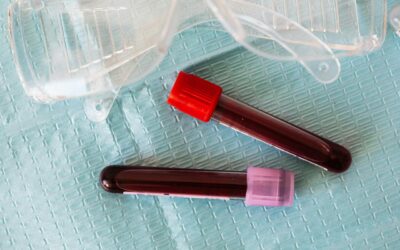We all understand the importance of staying fit in our lives because many health-related issues can affect our bodies due to our daily lifestyles. However, the challenge is that we often neglect proper diet and regular exercise. This neglect can lead to various diseases, including blood pressure, thyroid, diabetes, constipation, etc. Today, we will focus on thyroid symptoms and how to identify thyroid issues through a simple thyroid lab test in a medical clinic in Mumbai. But before we delve into that, let’s first understand what the thyroid is.
What is thyroid?
The thyroid is a gland shaped like a butterfly, situated in the front of your neck. It plays a crucial role in regulating different metabolic processes in the body. The thyroid produces hormones, mainly thyroxine (T4) and triiodothyronine (T3), which impact energy metabolism, growth, and development.
To evaluate the thyroid’s function and identify any issues, doctors perform thyroid lab tests. These tests help in assessing the thyroid gland’s performance and detecting abnormalities.
Thyroid Stimulating Hormone (TSH) Test:
The Thyroid Stimulating Hormone (TSH) test measures a hormone produced by the pituitary gland. TSH signals the thyroid to make T3 and T4 hormones.
- High TSH Levels: This may suggest hypothyroidism, indicating an underactive thyroid.
- Low TSH Levels: This could indicate hyperthyroidism, suggesting an overactive thyroid.
Free T4 (thyroxine) and Free T3 (triiodothyronine) Tests:
- The Free T4 (thyroxine) and Free T3 (triiodothyronine) tests measure the levels of the active thyroid hormones, T4 and T3, that the body can use.
- Abnormal levels of these hormones may indicate an imbalance in thyroid function.
These tests help assess how well the thyroid is functioning and whether there is a need for further evaluation or treatment.
Other thyroid lab tests may include:
Thyroid Antibody Tests:
These tests, including anti-thyroid peroxidase (TPO) antibodies and anti-thyroglobulin antibodies, play a crucial role in diagnosing autoimmune thyroid conditions such as Hashimoto’s thyroiditis and Graves’ disease.
Thyroid Ultrasound:
A non-invasive imaging test to assess the size and structure of the thyroid gland.
Radioactive Iodine Uptake (RAIU) Test:
This test evaluates how well the thyroid takes up iodine, providing information about thyroid function and potential nodules. This test assesses how effectively the thyroid absorbs iodine, providing info about its functioning and the possibility of nodules.
Conclusion:
Understanding thyroid lab test results, such as the (thyroid lab test), is crucial for diagnosing thyroid disorders and guiding appropriate treatment. Abnormalities in thyroid function can lead to conditions such as hypothyroidism, hyperthyroidism, goitre, or thyroid nodules. If you’re in Mumbai, finding a reliable medical clinic in Mumbai is essential for proper evaluation and interpretation of thyroid lab test results. For that, Tilak Nagar Speciality Clinic stands out as the best clinic for regular monitoring and management, ensuring the maintenance of thyroid health.








